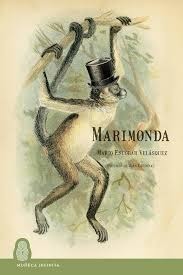
Original Language: Español
Year of publication: 1985
Valoración: Advisable
This book cheats. From the first moment, in addition, because the first page refers us to a press release in which the recruitment of monkeys by the Ministry of Defense of Israel for humanitarian work is reported. We might think, then, what we will find in the next 150 pages will be something like a dystopia, a science – fiction novel or comedy. Wow, if we will be facing a tropical version of The planet of the apes or of 12 monkeysto put a couple of examples.
But soon we will discover that there is hardly any of the above and that what we will finally read will be a novel, starring a small group of Marimondas, much more complex than it could initially seem.
Animal prominence, therefore, but humanized animals (and animated humans, as a back of the currency) in a text that touches many issues. Thus, colonialism, globalization, man – nature relationship, social organization or the formation of leaderships cross the pages of a novel that in an almost light tone, as if we were reading a documentary of National Geographic, puts on the table a very discussed topic in Latin American literature of the first half of the twentieth century: that of civilization or barbarism.
Overcome the initial strangeness that causes that animal prominence, one is extracting positive things from the novel. Three stand out above all:
- Language, which combines the popular with “poeticriential”, so related to the geographical context in which the novel is located. Better an example that, I don’t know whether or not, leads me to think about Tomás González:
He rose to the rough face of the body of open eyes on whose opaque background a reflection of starry sky was copied, and found that of those stable eyes for death, as if they wanted to look at the interior of the skull itself, and of the nose that was little more than a few dark holes, today the essence of that smell of death condensed in droplets escaped in droplets
- perspective changes. The weight of the novel falls to the leader of the pack of Marimondas, but Escobar Velásquez moves him to ants, a fox, a lizard, some cows or a man, without shame and without the thing squeezing.
- The author’s ability to approach deep issues from the most absolute simplicity, in an almost fable tone.
Source: https://unlibroaldia.blogspot.com/2025/08/mario-escobar-velasquez-marimonda.html


